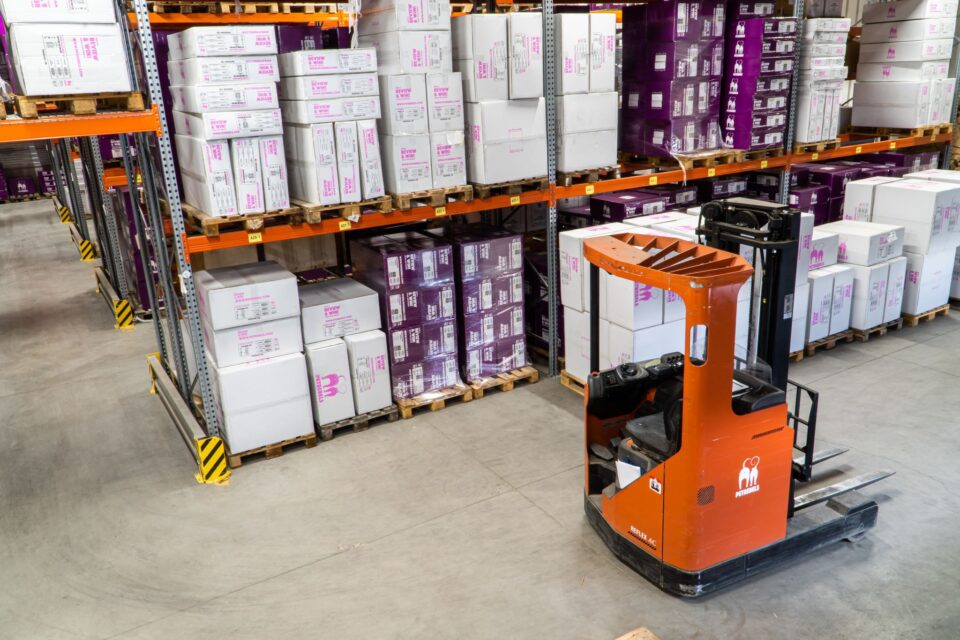
How Vendor Managed Inventory (VMI) Strengthens Supply Chain Resilience and Collaboration
To optimize inventory management, retailers and suppliers are increasingly turning to Vendor Managed Inventory (VMI) tools that transfer the responsibility…
Bona: Building Operational Excellence with Solochain WMS Read the use case

One of the best ways to improve inventory management in the retail industry is by implementing a warehouse management system (WMS). A WMS is a software system that helps retailers keep track of their inventory, automate counting and forecasting, and integrate with point-of-sale (POS) systems.
With a WMS in place, retailers can have real-time visibility into inventory data and automate replenishment and reordering processes. This can help retailers reduce stockouts, improve forecasting accuracy, and ultimately improve their bottom line.
One of the biggest challenges of inventory management in the retail industry is tracking inventory in multiple locations. For retailers with multiple stores, it can be difficult to know how much of each product is in stock at each location.
This can lead to stockouts at one store while another store has too much of the same product. A WMS can help retailers track inventory across multiple locations and ensure that products are being moved between stores as needed.
Another challenge of inventory management in the retail industry is inaccurate inventory counts. This can lead to stockouts of popular items or overstocking of items that aren’t selling well. A WMS can automate inventory counting and forecasting, which can help retailers maintain accurate inventory counts and avoid stockouts and overstocking.
Forecasting demand is another challenge of inventory management in the retail industry. Retailers need to have a good sense of how much of each product to order and when to order it. A WMS can help retailers forecast demand by analyzing sales data and identifying trends. This can help retailers avoid stockouts and overstocking.
Inefficient manual processes can be a challenge of inventory management in the retail industry. Manually counting inventory and entering data into spreadsheets can be time-consuming and prone to errors. A WMS can automate these processes and reduce the time and effort required to manage inventory.
A WMS can provide real-time inventory tracking, which can help retailers know how much of each product is in stock at all times. This can help retailers avoid stockouts and overstocking.
A WMS can automate inventory counting and forecasting, which can help retailers maintain accurate inventory counts and avoid stockouts and overstocking.
Another benefit of implementing a WMS is the ability to integrate it with POS systems. This integration allows retailers to have a real-time view of their sales data and inventory levels. This can help retailers make more informed decisions about how much of each product to order, when to order it and which products are selling well and which are not.
A WMS can also provide improved visibility into inventory data, allowing retailers to see how much of each product is in stock, where it is located, and when it is expected to be restocked. This can help retailers optimize their inventory and avoid stockouts and overstocking.
Finally, a WMS can automate replenishment and reordering processes, which can help retailers ensure that they always have the products they need in stock. This can help retailers avoid stockouts and ensure that they are always able to meet customer demand.
Inventory management is crucial for the success of any retail business. The challenges of tracking inventory in multiple locations, inaccurate inventory counts, difficulty in forecasting demand and inefficient manual processes can all be addressed by implementing a WMS system.
With real-time inventory tracking, automated inventory counting and forecasting, integration with POS systems, improved visibility into inventory data and automated replenishment and reordering, a WMS can streamline inventory management and improve the overall efficiency of retail operations.
For retail companies considering implementing a WMS, it’s worth considering the benefits and exploring the different options available on the market.

To optimize inventory management, retailers and suppliers are increasingly turning to Vendor Managed Inventory (VMI) tools that transfer the responsibility…

In an ever-evolving logistics environment, agile and precise warehouse resource management is essential to remain competitive. With increasing volumes driven…

France’s electronic invoicing reform relies on a Y-architecture, where Partner Dematerialization Providers (PDPs) play a central role in issuing and…

Work with our team to build your ideal supply chain software stack and tailor it to your unique business needs.